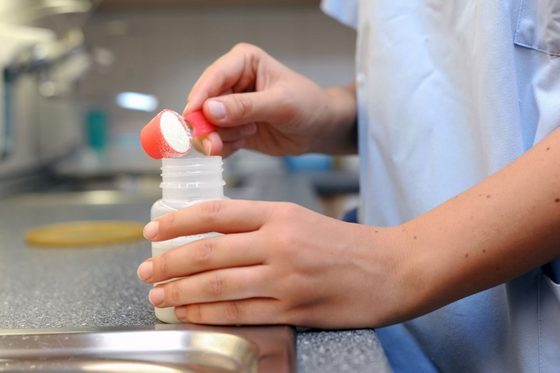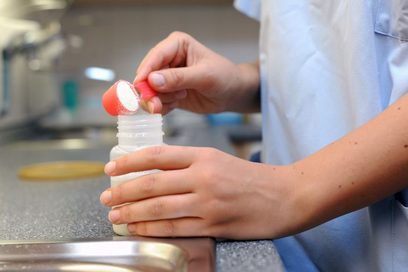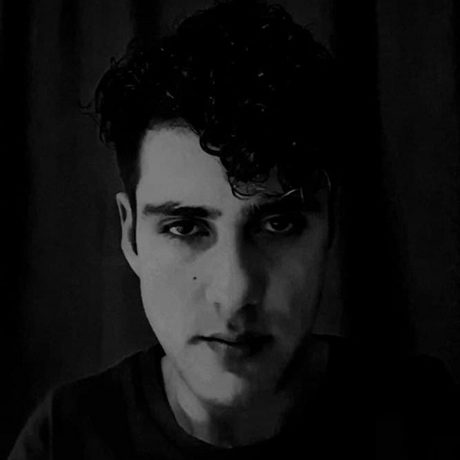Jonah Abbasi
Foto: private
During his college-based training programme to become a nurse, Jonah Abbasi (24) is getting to know the hospital routine and the different specialist areas of nursing.


When Jonah Abbasi left his homeland of Afghanistan for political reasons in 2014, he was still at school. He was following his family, who had already fled to Germany two years earlier, and lived with them in Erfurt to begin with. “There, I first attended the ninth grade of a Realschule (the middle school in Germany’s three-tier school system) and then applied to various grammar schools,” he reports. “I was accepted by one and there I was able to choose between the specialisms of data processing and health.”
He chose health and thus set the course for his future. “I left that school after the twelfth grade because the technical college entrance qualification was enough for me. After that, I did a voluntary social year at the Helios Hospital in Erfurt.” He enjoyed the work there and helping other people so much that he decided to train to become a nurse.



Jonah Abbasi
Foto: private
This training is offered at vocational colleges and is combined with periods of work experience in healthcare institutions. Jonah Abbasi applied to the Asklepios Hospital in Barmbek and the Asklepios Training Centre for Healthcare Occupations (BZG) in Hamburg, which was part of the hospital group. “Getting a place was not a problem for me with my technical college entrance qualification. Because this school qualification automatically means that I have a language level of C1, I did not need to do a separate language test.” However, he did have to pass an interview at the school and an admission test. “The test was an ethical question, for which we had to assess a case.” He was able to impress the examiners with his answer and start the training programme. He has now already completed the first six months – and therefore the trial period.
In 2020, the vocational training programme was generalised. Since then, the training programme has included paediatric and geriatric nursing as well as general nursing. “This means that we study topics from all these areas at the college,” explains Jonah Abbasi. “I have already learnt a lot about nursing procedures and about frequent illnesses in children and old people,” he reports. “During the practical training programme, we also have placements on the children’s ward and in a nursing home.”
College and work experience alternate in blocks of several weeks. “In my placements, I work in different departments of the hospital and can apply what I have learnt at the college,” says Jonah Abbasi. In the process, he is learning the peculiarities and the specific nursing procedures in the respective departments and gaining practical experience. “At the beginning, for example, we spent six weeks at the college learning the basics such as personal hygiene, prophylactics and how to monitor the vital signs. We were then able to apply these in our work experience.”
Jonah Abbasi has already worked in nephrology. This ward looks after kidney disease and hypertension. After the next block of teaching at the college, he will work in outpatient care. The college-based training programme was the right decision for the 24-year-old: “After I complete the training, I would like to work as a nurse and then continue training. Perhaps I will study nursing management after a few years. I could enjoy that.”
Stand: 08.05.2023
Vielen Dank für dein Feedback zu dieser Seite! Deine Kritik oder dein Lob zu abi.de kannst du uns gerne auch ergänzend über „Kontakt“ mitteilen. Deine abi» Redaktion
Diese Seite ist erreichbar unter:
https://abi.de/unterstuetzung/start-in-deutschland/nursing-people-of-all-ages